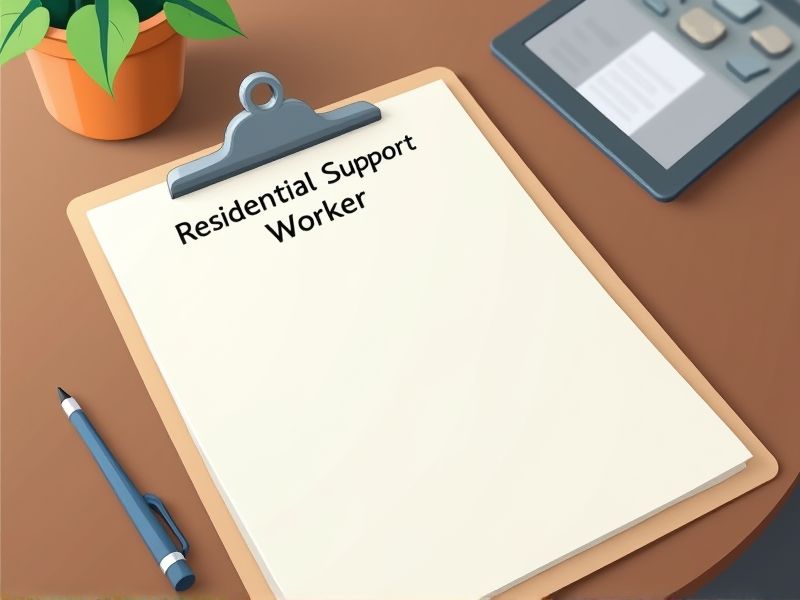
Residential Support Workers play a crucial role in enhancing the quality of life for individuals needing assistance. Certifications validate their ability to provide safe and effective care, ensuring competency in managing the complex needs of residents. They help ensure compliance with legal and ethical standards, fostering trust between families and service providers. Here are some important certifications you may need as a Residential Support Worker.
First Aid and CPR Certification
A Residential Support Worker often encounters emergency situations where immediate response can be critical, and First Aid and CPR certification equips them with the necessary skills to address these effectively. Certification ensures workers can stabilize health emergencies, thereby reducing potential complications and improving outcomes. Legal and regulatory frameworks frequently require certification to ensure a baseline of care and protection against liability. Certified workers have increased confidence in handling incidents, fostering a safer environment for both residents and staff.
Mental Health First Aid Certification
Mental Health First Aid Certification equips residential support workers with the skills necessary to recognize early signs of mental health issues, enabling timely intervention. Training in this certification enhances their ability to de-escalate crises, fostering a safer environment for both residents and staff. Being certified increases understanding and empathy, which improves communication and support strategies for individuals facing mental health challenges. This certification also ensures compliance with best practices in care facilities, contributing to better outcomes for residents.
Manual Handling Training Certification
Manual Handling Training Certification equips residential support workers with the skills to safely lift and move residents, reducing the risk of injury. Without proper training, workers may use incorrect techniques, leading to musculoskeletal disorders. Certified individuals can ensure safer environments, enhancing resident care quality. Regulatory bodies often require this certification to comply with health and safety standards.
Crisis Intervention Certification
Crisis Intervention Certification equips residential support workers with skills to manage and de-escalate potentially harmful situations, ensuring the safety of residents and staff. This certification provides knowledge essential for identifying early signs of distress, which can prevent escalation. Residential settings often involve individuals with complex needs, and certified workers are better prepared to address these challenges effectively. Overall, the certification can enhance a worker's competence and confidence, resulting in improved care outcomes and worker retention.
Medication Administration Certification
Medication administration certification is required for residential support workers to ensure they can safely and accurately distribute medications, minimizing the risk of errors and potential harm to residents. Effective training enhances a worker's ability to understand medication protocols, dosing schedules, and potential side effects, which contributes to overall resident health and well-being. Certification serves as a critical tool for regulatory compliance, as healthcare facilities are held to strict oversight standards that require competent staff. Adequate certification also builds trust between residents, their families, and the care providers, fostering a safe and supportive living environment.
De-escalation and Conflict Resolution Certification
De-escalation and Conflict Resolution Certification equips residential support workers with essential skills to manage and defuse volatile situations effectively, reducing the risk of harm to both clients and staff. When workers are trained in these techniques, it leads to improved client relationships and a safer environment, enhancing overall well-being and stability within residential settings. Certified workers are better prepared to handle stress-inducing scenarios, which translates into more efficient and compassionate support services. This certification fosters a proactive approach to conflict, minimizing the potential for escalation and promoting a positive atmosphere conducive to recovery and growth.
Child Protection and Vulnerable Adult Safeguarding Certification
Child Protection and Vulnerable Adult Safeguarding Certification ensures residential support workers are equipped with the necessary skills to identify and respond to signs of abuse, reducing potential harm. Certification reinforces the trust and credibility of the support worker, crucial for effective interventions in sensitive situations. Training provides legal and ethical guidelines, ensuring that all actions comply with safeguarding laws and policies. The certification process fosters a safer environment within residential settings by promoting a culture of vigilance and accountability.
Health and Safety at Work Certification
Acquiring Health and Safety at Work Certification for a Residential Support Worker ensures compliance with legal requirements, minimizing the risk of legal penalties. It equips workers with essential knowledge to identify and mitigate potential hazards, reducing the likelihood of accidents and injuries. Workers with this certification are better prepared to handle emergency situations, ensuring the safety and well-being of residents. Training improves overall safety culture within the organization, leading to higher morale and trust among staff and residents.
Communication and Interpersonal Skills Certification
Obtaining a Communication and Interpersonal Skills Certification can enhance a residential support worker's ability to effectively understand and respond to the unique needs of clients, leading to improved care outcomes. Certification provides structured learning that equips workers with the skills necessary to navigate complex social dynamics within residential facilities. It helps establish a standardized level of competence, which can foster trust and rapport between support workers and residents. Employers may view certified individuals as more qualified, potentially leading to improved job security or career advancement opportunities.
Cultural Competency Certification
Cultural competency certification equips residential support workers with the skills to effectively communicate and empathize with individuals from diverse backgrounds, reducing misunderstandings and enhancing care quality. Diverse cultural perspectives influence the experiences and needs of residents, making culturally-informed support crucial for meeting those needs accurately. Certification in cultural competency prepares support workers to address potential biases and foster an inclusive environment, leading to improved resident outcomes. Given the increasingly multicultural landscape, this certification ensures that support services are relevant and respectful to all community members.
Summary
When you obtain certifications as a Residential Support Worker, you enhance your skills and credibility in the field. This leads to improved job performance, resulting in better outcomes for the individuals you support. Employers recognize certified workers as more competent, which may lead to more job opportunities and potential salary increases. Certified workers contribute to a more professional and effective caregiving environment, thereby raising the overall standard of care.
